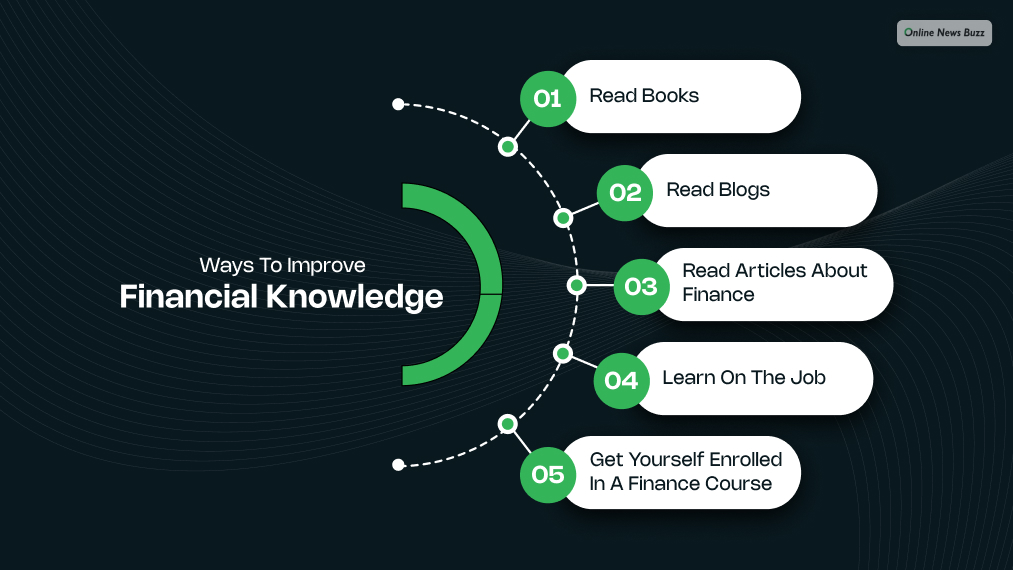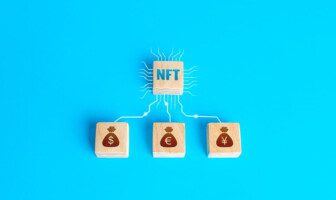
Financial literacy refers to comprehending and applying various economic concepts, such as personal financial management, budgeting, and investing.
It includes both conceptual and procedural financial knowledge, as well as applied financial understanding. Financial illiteracy refers to the lack of these skills.
Financially literate people are less likely to fall victim to fraud. A robust financial literacy foundation can support various life goals, including saving for retirement or education, managing debt responsibly, and starting a business.
The secret to financial success is financial literacy. The specific benefits of financial literacy can vary depending on a person’s circumstances, but here are a few examples of situations where financial literacy can be beneficial: putting money aside for retirement, expense reduction, investing, choosing an insurance policy, debt management, buying a house, purchasing a vehicle, putting money aside for education, and credit card utilization.
Importance Of Financial Knowledge And Decision Making:

People are much more empowered when they have a good understanding of money. Literacy allows them to build a practical road map that will guide them in making sound financial decisions in their daily lives. Anything that resembles credit, bond yields, or savings is daunting to people who lack financial education, placing them at a disadvantage.
The truth is that handling your finances and making sound financial decisions are daunting tasks. Financial decision-making is a complicated beast that can take far more than familiarity to comprehend fully. People with an intricate understanding of finance or those having an MBA with accounting concentration would be able to spot red flags.
And, at the very least, consult with a trusted advisor before making any commitments.
Annamaria Lusardi researched financial knowledge and decision-making. She found that the elderly population has a low level of financial literacy and thus is at risk of making bad financial decisions. We’ll go into how to use your financial knowledge to make informed decisions in depth in this post.
Financially literate individuals can confidently manage their income, including efficiently allocating their earnings to their goals, restricting or eliminating debt, and making better decisions. Creating a budget is the first step in learning how to spend your money correctly. After you complete budgeting, you can keep track of your expenses and review them regularly.
When you are financially literate, you know the value of comparing loan terms. You’re also aware that paying off credit card balances each month is the best way to avoid interest charges.
Financial knowledge can help you determine if an investment opportunity is appropriate for your financial objectives or not. At the same time, and even more importantly, it will show you what people want from investments and how your decisions will help them get it.
Have you or someone in your department ever tried to try an exciting project only to be frustrated when the finance team refuses it? You will more efficiently interact and collaborate with the finance department and create opportunities that add value to your company if you have financial knowledge.
The Five Essential Proficiencies Of Financial Knowledge:

Household budgeting, learning how to handle and pay off debts, and assessing the tradeoffs between various credit and investment products are just a few of the skills that come under the umbrella of financial knowledge. The five essential competencies of financial knowledge that everybody should be aware of are as follows:
Earn:
The term “earning” refers to taking money home from a job, self-employment, or investment returns. The majority of people receive money by working and collecting a paycheck. You can scrutinize your earnings by checking your pay stub to determine your gross and net profits. You can also keep a check on any other deductions, such as employer-provided health insurance or a retirement plan.
Spend:
Money spent on products, services, or the benefit of someone or something is called spending. Personal budgeting is needed to succeed at spending. It’s nothing more than a plan for how you’d like to spend your money, but it’s also the most successful way to achieve your financial objectives.
Save and invest:

Saving involves putting money away that you don’t need right now for an emergency or a potential purchase. Investing is the process of purchasing assets such as stocks, shares, mutual funds, or real estate with the intention of profit. An emergency fund, saving for retirement, making a significant investment, and paying off personal loans are things that people need to worry about saving and investing.
Borrow:
The term “borrowing” refers to the process of taking loans. One of the most critical steps in being financially literate is to establish good credit. Maintaining a credit card balance is one of the simplest ways to accumulate debt, but you need to take care of your score on the credit card.
Protect:
Insurance, identity fraud, and retirement planning are all subjects included in the protection. It’s vital to safeguard the money you’ve received once you’ve developed a concrete investment plan. Thus monitoring your bank accounts and credit card statements for irregularities or fraudulent behavior regularly and purchasing appropriate insurance to cover in the case of an emergency are part and parcel of being financial literate.
Ways To Improve Financial Knowledge-

Are you thinking about how you can improve your financial knowledge? Worry not, we have got you covered with these three tips on how to improve your financial knowledge.
1. Read books, blogs, and articles about finance:
If you’re new to finance and have little to no prior experience, your first step should be to create a knowledge foundation. You can learn finance fundamentals from various blogs, magazines, books, websites, podcasts, and videos.
2. Learn on the job:
Another great way to pick up skills at work is to request tasks requiring some financial consideration.
3. Get yourself enrolled in a Finance course:
You can broaden your knowledge by enrolling in an online finance course. It will help you understand how financial issues affect your company and your position, which will help you be more successful at work.
Verdict:
Financial literacy is an essential life skill to possess because it improves one’s financial capacity. Savings, budgeting, and financial planning should all be well-taught from the beginning of education. It is, however, never too late to become educated on the subject.
Read Also:




























